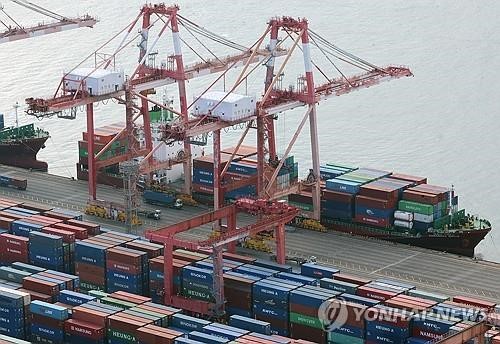The Organization for Economic Cooperation and Development (OECD) revised down its outlook for South Korea's economic growth this year to 2.2 percent, Seoul's finance ministry said Monday.
The figure marked a 0.1 percentage-point fall from its projection of 2.3 percent made in November, according to the Ministry of Economy and Finance.
The projection was on par with that by the South Korean government, though the Bank of Korea (BOK) presented a 2.1 percent growth outlook for this year.
The International Monetary Fund last week projected a 2.3 percent expansion for South Korea in 2024, citing greater-than-expected resilience in major global economies.
Analysts have said the South Korean economy is forecast to recover this year on rising exports of semiconductors, vehicles and other key items.

As for the global economy, the OECD raised its earlier forecast by 0.2 percentage point to 2.9 percent.
The global economy has lost growth momentum from around the end of last year, and recent data indicated moderate growth in 2024, the OECD said in its latest report.
Global trade remained in the doldrums, but has shown signs of a recovery on the back of rising demand for semiconductors, cars and air travel.
But the organization warned that the geopolitical uncertainty stemming from the Middle East crisis surrounding the Red Sea could push up global energy prices and aggravate a supply bottleneck.
High interest rates and their lagged effects are also feared to put pressure on the economy, the report read.
The OECD expected inflation in South Korea to come to 2.7 percent this year before reaching 2.0 percent in 2025, slowing from last year's 3.6 percent.
The Group of 20 nations are forecast to experience a 6.6 percent price growth in 2024, accelerating from last year's 6.3 percent, calling for maintaining a restrictive monetary policy stance for the time being to curb inflation.
The BOK has kept its benchmark interest rate unchanged at 3.5 percent since January 2023. It froze the rate eight straight times, though the level is the highest since 2008.

